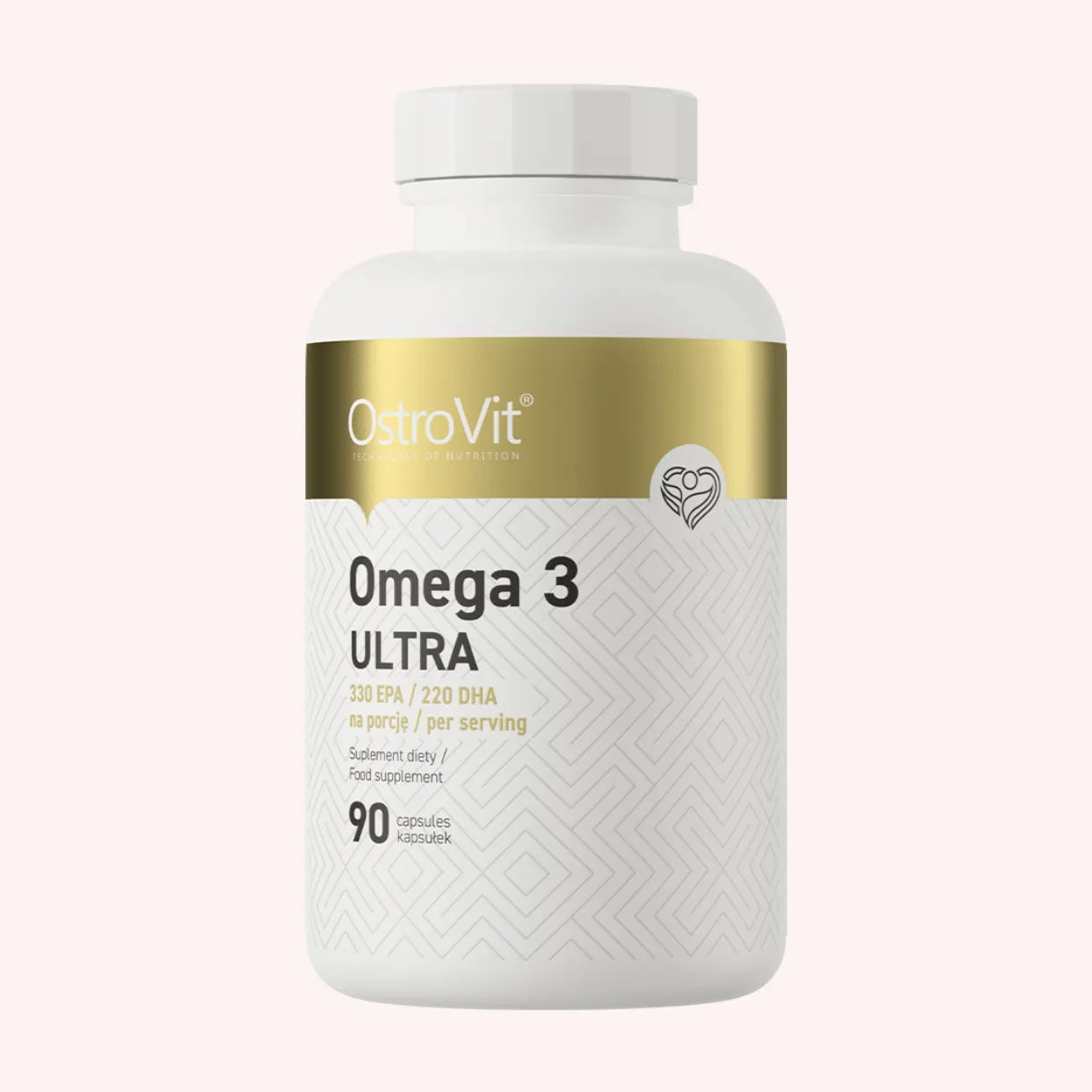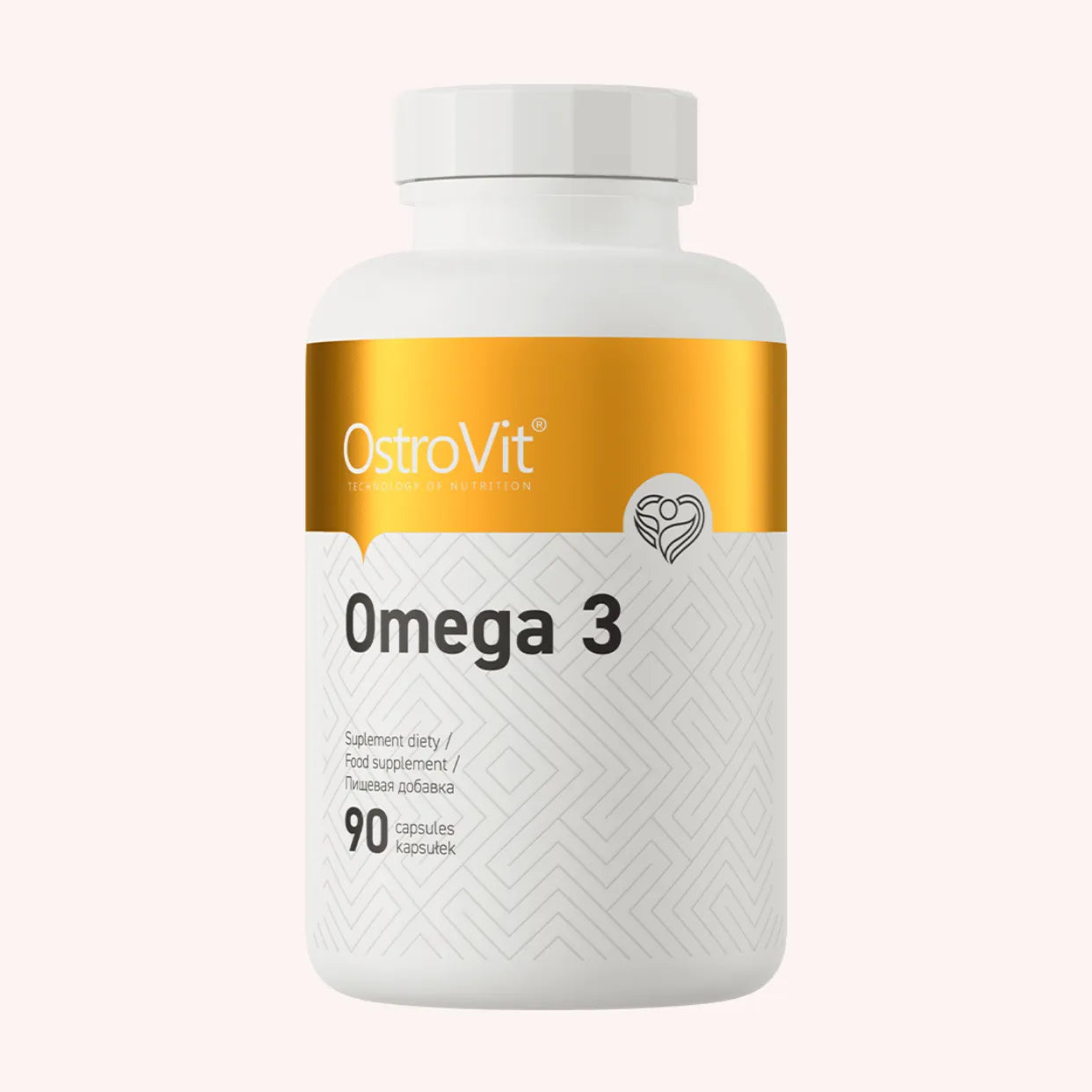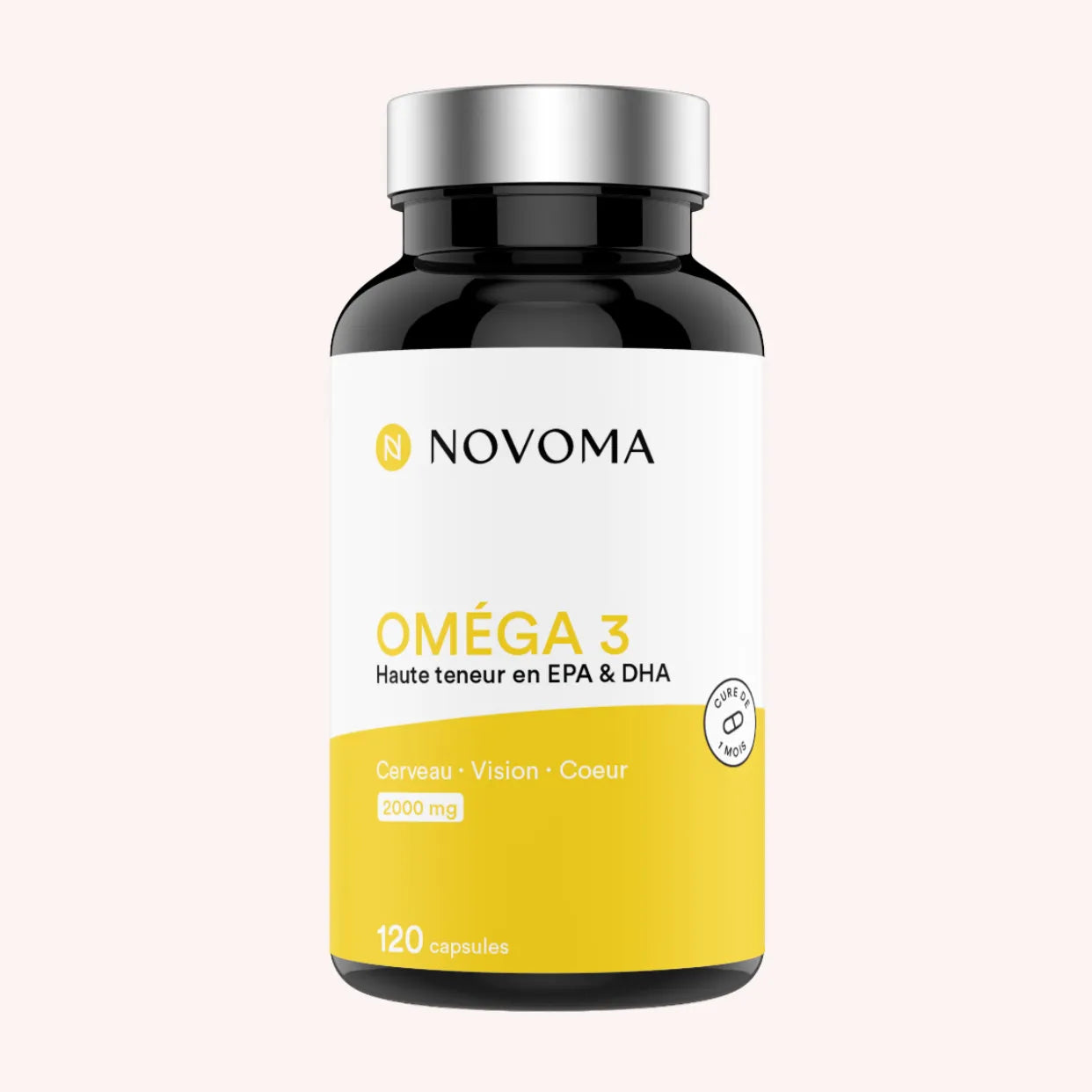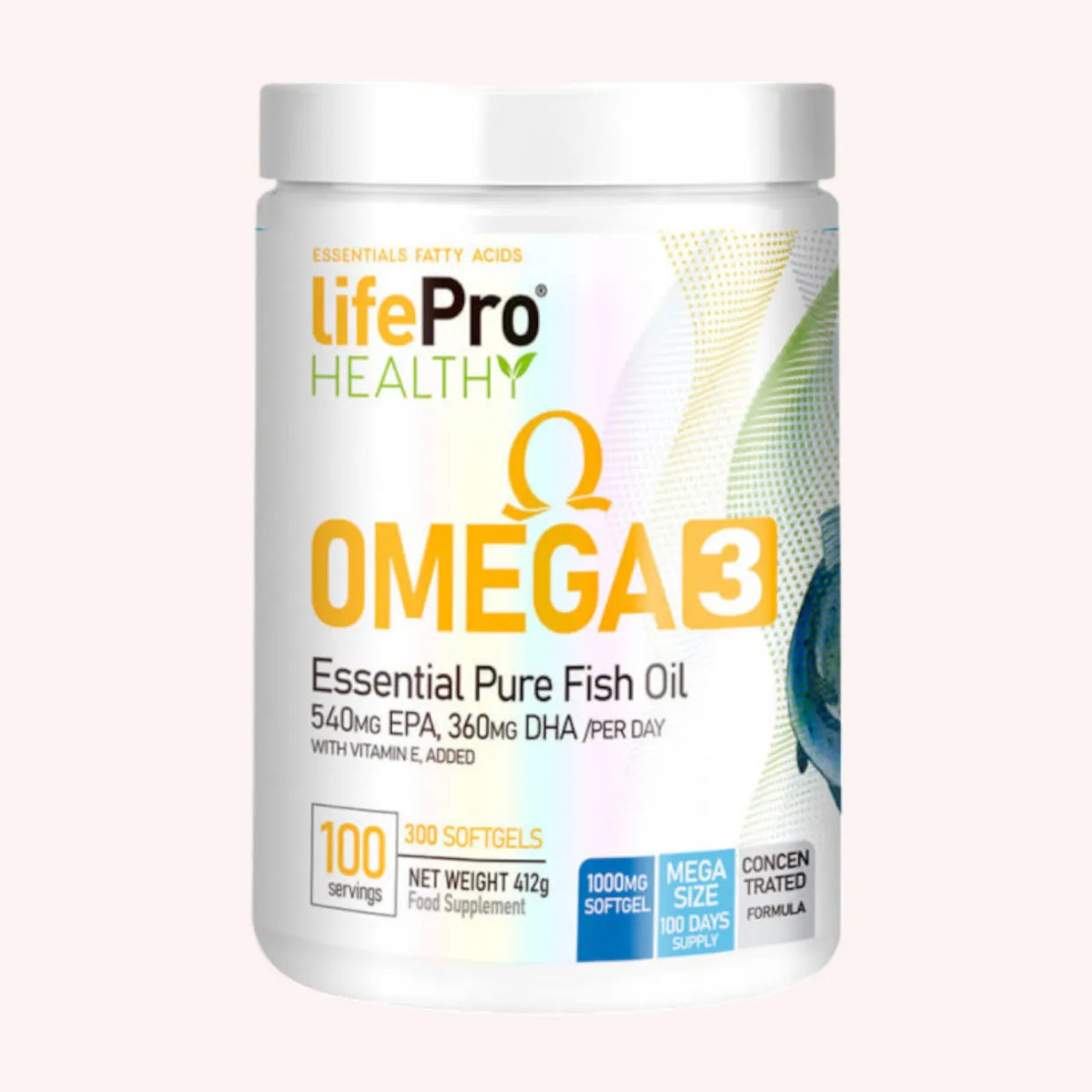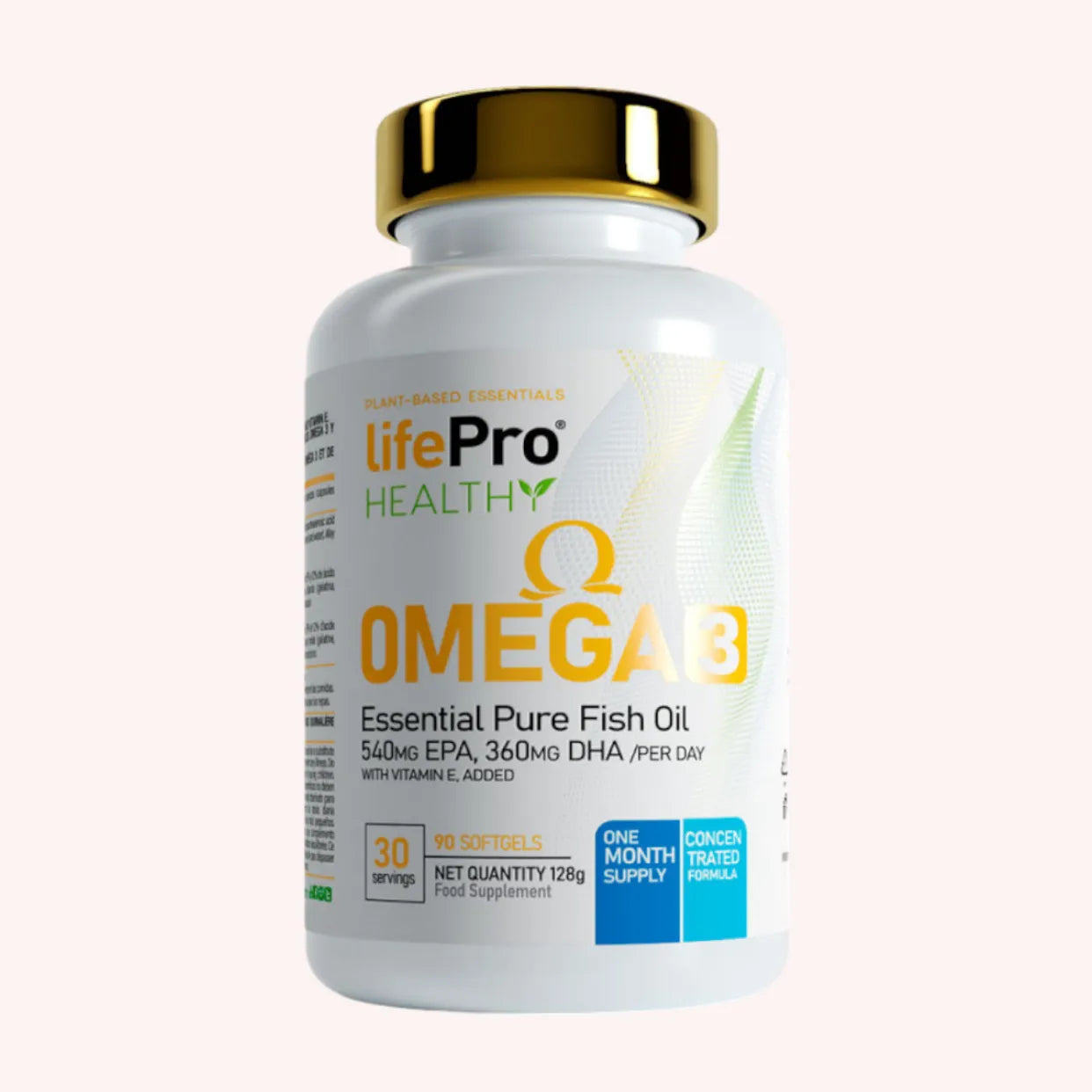Omega-3s are essential fatty acids often taken in capsule form for their many benefits, including cardiovascular health , cognitive function , and signs of inflammation .
However, despite these benefits, it is essential to be aware of the potential dangers associated with their consumption in the form of dietary supplements. Here, we will explore the risks and precautions to take for the safe use of Omega-3 capsules.
Sources of Omega-3

Omega-3s are found in various foods and supplements. There are three main types of Omega-3s:
- Alpha-linolenic acid (ALA): Found in plant sources like flaxseeds, walnuts, and vegetable oils.
- Eicosapentaenoic acid (EPA) and docosahexaenoic acid (DHA): Found in oily fish such as salmon, mackerel and sardines.
Quality and purity of supplements
One feature to consider with Omega-3 capsules is the quality and purity of the products.
Supplements can be contaminated with toxic substances such as heavy metals (mercury, lead) due to the origin of the fish used. It is therefore crucial to choose products that are certified and tested for purity in order to minimize these risks.
When you’re wondering how to cut , it’s essential to consider the quality of the supplements you’re consuming. Using high-quality products that are free of contaminants is especially important for maintaining optimal health and achieving your body composition goals without introducing unwanted toxins into your body.
Drug Interactions and Side Effects
Omega-3s, although beneficial for health, can interact with certain medications and cause unwanted side effects. It is central to understand these interactions and take the necessary precautions to minimize the risks.
Drug interactions
Omega-3s, especially those derived from fish oils, have natural anticoagulant properties. This means that they can thin the blood and thus interact with medications designed to prevent blood clots. Commonly prescribed blood thinners include warfarin, heparin, and other similar medications. When taken in conjunction with Omega-3 supplements, there is an increased risk of bleeding, whether internal bleeding or prolonged bleeding in the event of an injury.
Additionally, Omega-3s can also interact with antiplatelet medications like aspirin or clopidogrel, similarly increasing the risk of bleeding. For those taking these types of medications, it is strongly recommended to consult a healthcare professional before adding Omega-3s to their regimen.
Side effects of Omega-3
In addition to the benefits of Omega 3 and its drug interactions, consuming Omega-3 can cause various side effects. Here are some of the most commonly reported side effects:
- Stomach upset: Omega-3 supplements, especially those derived from fish oils, can cause nausea and abdominal pain in some people. This upset stomach is often a result of the oily nature of the health food supplement and can be minimized by taking the capsules with meals. Sensitive individuals can also try dividing their daily dose into several smaller doses to reduce these effects.
- Acid reflux and belching: Another common side effect of Omega-3 supplements is acid reflux, which can lead to unpleasant belching. These belches are often described as having a fishy odor, which can be bothersome for many users. To alleviate this problem, it is advisable to take Omega-3s at the beginning of a meal and to choose “reflux-free” or enteric-coated formulas, which dissolve in the intestine rather than the stomach.
- Loose Stools: Omega-3s can also cause mild digestive upset, including loose or diarrheal stools. This side effect is usually mild and temporary, often disappearing after a few days of regular supplementation. If symptoms persist, it may be helpful to reduce the dose of Omega-3 or choose a different form of the supplement.
Preventive measures
To minimize the risks of interactions and side effects, several measures can be taken:
- Consult a healthcare professional: Before starting Omega-3 supplementation, especially if you are taking anticoagulant or antiplatelet medications.
- Start small: Introducing Omega-3s into your diet gradually can help your body adjust without causing significant digestive upset.
- Choose high-quality supplements: Opting for products that are certified and tested for purity and freedom from contaminants can reduce the risk of adverse reactions.
Risks associated with excessive consumption
Although Omega-3s are beneficial, excessive consumption can also pose risks to your health:
- Blood thinning: Although Omega-3 helps maintain good blood circulation, too high doses can increase the risk of bleeding.
- Pro-inflammatory effects: Paradoxically, overconsumption can cause excessive oxidation of fatty acids, leading to tissue inflammation.
Contraindications of Omega-3
Some people should avoid or limit their consumption of Omega-3 capsules:
- People taking blood thinners: Increased risk of bleeding.
- People with seafood allergies: Risk of severe allergic reactions.
- Pregnant or breastfeeding women: Always consult a healthcare professional before taking supplements.
Our advice for healthy consumption
To benefit from the advantages of Omega-3 without risks, it is important to follow a few recommendations:
- Consult a healthcare professional: Before starting any supplementation, especially if you are taking medication or have any specific medical conditions.
- Choose quality products: Favor supplements that are certified and tested for purity, and contain antioxidants to prevent oxidation.
- Respect the recommended doses: Do not exceed the recommended daily intake.
Importance of quality and provenance
The quality of Omega-3s depends largely on their source. Oily fish, such as salmon, mackerel and sardines, are often recommended for their high EPA and DHA content. However, it is important to ensure that these fish come from unpolluted areas, as they can accumulate heavy metals and other toxins.
Premium fish oils are typically purified to remove these contaminants, making them safer for consumption.
Antioxidants and preservation
Omega-3s are susceptible to oxidation, which can reduce their effectiveness and potentially produce harmful compounds. To prevent this, manufacturers often add antioxidants, such as vitamin E, to Omega-3 capsules.
We also recommend storing your supplements in a cool, dark place to extend their shelf life and maintain their quality.
Balance between Omega-3 and Omega-6
To maximize the benefits of Omega-3, it is essential to maintain a good balance with Omega-6, another type of essential fatty acid. The typical Western diet is often unbalanced, with excessive intake of Omega-6 compared to Omega-3. An ideal ratio would be 1:1 to 1:4, but it is common to see ratios of 1:10 or higher.
Reducing your intake of foods rich in Omega-6, such as certain vegetable oils and processed foods, while increasing your Omega-3 intake, helps restore this balance.
Special cases: Athletes and the elderly

Omega-3 needs can vary depending on age, gender, and physical activity level. Athletes, for example, may benefit from Omega-3 supplementation to improve muscle recovery and reduce inflammation. However, it is important not to exceed the recommended doses to avoid adverse effects.
Older adults may also find Omega-3s particularly beneficial in supporting cognitive and cardiovascular health, but they should consult a doctor before starting any new supplement.
Precautions for people undergoing medical treatment
People on medication, especially those taking blood thinners, should be especially careful with Omega-3 supplements.
These fatty acids can interact with certain medications, increasing the risk of bleeding. It is essential to consult a healthcare professional before starting a supplement to avoid any drug interactions.
Omega-3 capsules offer many benefits to your health, but their consumption should be done with caution.
By choosing high-quality products, following recommended doses, and consulting a healthcare professional, you can maximize the benefits of Omega-3 while minimizing potential risks.
Sources:
- Inflammation and its resolution in atherosclerosis: mediators and therapeutic opportunities Bäck M, Yurdagul A Jr, Tabas I, Öörni K, Kovanen PT. Nat Rev Cardiol. 2019 Jul;16(7):389-406. doi:10.1038/s41569-019-0169-2. PMID: 30846875. Free PMC article. Review. : https://pubmed.ncbi.nlm.nih.gov/30846875/
- Dietary Supplements-For Whom? The Current State of Knowledge about the Health Effects of Selected Supplement Use Wierzejska RE. Int J Environ Res Public Health. 2021 Aug 24;18(17):8897. doi:10.3390/ijerph18178897. PMID: 34501487. Free PMC article. Review. : https://pubmed.ncbi.nlm.nih.gov/34501487/
- Linking diet to acne metabolomics, inflammation, and comedogenesis: an update Melnik BC. Clin Cosmet Investig Dermatol. 2015 Jul 15;8:371-88. doi: 10.2147/CCID.S69135. eCollection 2015. PMID: 26203267. Free PMC article. Review. : https://pubmed.ncbi.nlm.nih.gov/26203267/
- Effect of Prenatal Omega-3 Polyunsaturated Fatty Acid Supplementation on Childhood Eczema: A Systematic Review and Meta-Analysis Jia Y, Huang Y, Wang H, Jiang H. Int Arch Allergy Immunol. 2023;184(1):21-32. doi:10.1159/000526366. Epub 2022 Oct 14. PMID: 36244339. Free article. Review. : https://pmc.ncbi.nlm.nih.gov/articles/PMC9266948/





